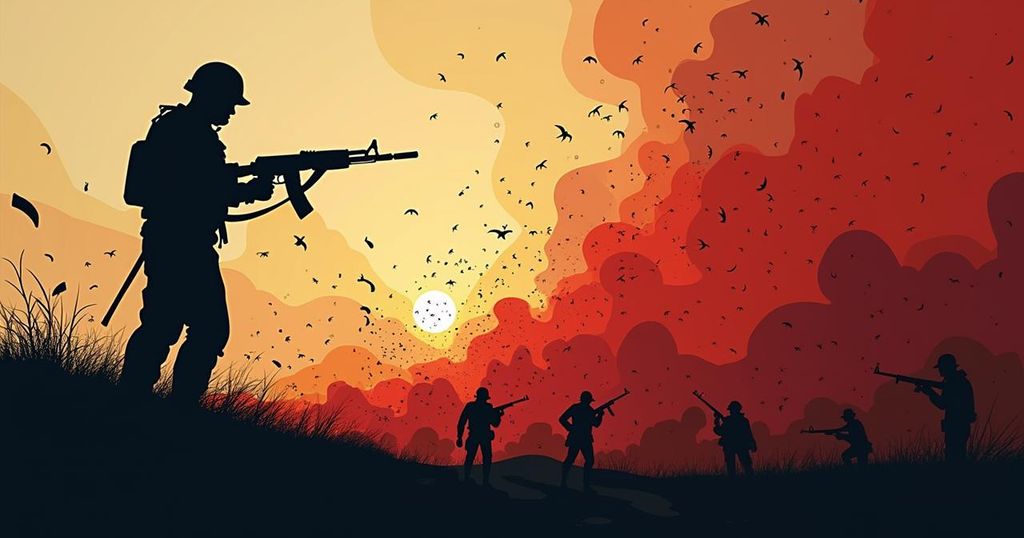Russia’s Strategic Position Amidst the Israel-Iran Conflict Escalation

The article discusses Russia’s complex relationship with Iran and Hezbollah amidst the escalating conflict driven by Israeli military actions in Lebanon. As Russia seeks to maintain influence in a multipolar world, it faces challenges due to U.S. support for Israel. While benefiting from regional chaos, Russia is cautious about a full-scale war, reaffirming its diplomatic pushes for restraint.
The ongoing escalation between Israel and its neighbors, particularly in Lebanon and with Iran, poses not only grave humanitarian concerns but strategic dilemmas for Russia. This complex situation sees Russia maintaining ties with both Iran—who provides military assistance for its operations in Ukraine—and Hezbollah, further complicating its foreign policy objectives. Anna Levina, a Russian researcher living in Beirut, is preparing for anticipated Israeli actions in Lebanon amidst considerable destruction and loss of life. Furthermore, analysts note that while Russia seeks to expand its influence in a multipolar world order, it finds itself hindered by U.S. support for Israel, which undermines diplomatic resolutions. Russia has condemned Israeli military actions, urging restraint, while simultaneously relying on Iranian military capabilities, thus intertwining Russian support with Iranian interests in the region. Nevertheless, both analysts agree that Russia does not desire a full-scale war, instead benefiting from the chaos which distracts the U.S. from the conflict in Ukraine. Moscow retains strategic interests in Syria and complex relationships with various factions, including Hezbollah. While history has shown a contentious relationship with Hezbollah, Russia currently emphasizes stability through its influence over Iran and Hezbollah to mitigate tensions with Israel. Levina believes that Hezbollah’s resistance will slow Israeli advances, reflecting on prior invasions by Israel as mistakes that have not been learned from.
The current conflict dynamics in the Middle East involve significant historical tensions and emerging geopolitical alliances. As Israel escalates military actions against Hezbollah in Lebanon, the situation poses challenges for Russia, which has complex ties with both Iran and Hezbollah, largely established through their shared interests in countering U.S. influence in the region. Furthermore, these relationships are crucial for Russia’s military engagements, especially considering its reliance on Iranian military support in the ongoing war in Ukraine. Russia’s foreign policy is marked by a desire for a multipolar world but faces opposition from U.S. actions that favor Israel, complicating its diplomatic efforts. The humanitarian implications of this conflict, particularly in Lebanon, showcase the urgent need for a peaceful resolution, which remains obstructed by the geopolitical maneuvers of the involved states.
In summary, Russia’s interests in the escalating conflict between Israel and Hezbollah are multifaceted, complicating its diplomatic stance and reliance on Iranian military support. While it seeks to exert influence and promote a multipolar world order, the current dynamics reveal the limitations imposed by U.S. support for Israel. As hostilities continue, the balance between fostering chaos and preventing outright war remains a delicate task for Moscow, which simultaneously navigates its relationships with Iran and Hezbollah amidst significant regional tensions.
Original Source: www.aljazeera.com






